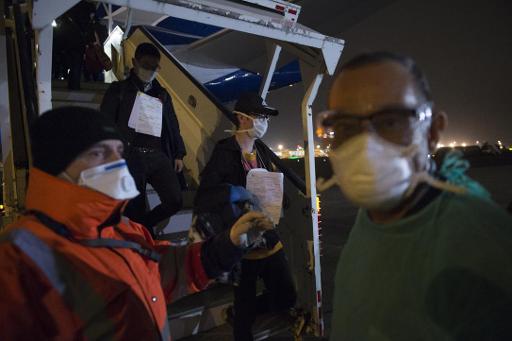The World Health Organisation (WHO) reported on Saturday that the number of confirmed cases globally were 77,794.
China has reported 76,392 confirmed cases (98 % of all cases), including 2,348 deaths. Outside China, there are 1,402 cases in 28 countries, with 11 deaths.
“The data from China continue to show a decline in new cases,” said WHO Director-General Dr Tedros Adhanom Ghebreyesus at an emergency ministerial meeting organized by the African Union.
“This is welcome news, but it must be interpreted very cautiously. It’s far too early to make predictions about this outbreak.”
According to WHO, the decline in new confirmed cases is partly due to a change in the way China reports numbers. Last week China started reporting clinically-diagnosed cases, in addition to laboratory-confirmed cases. China has now switched back to reporting only suspected and lab-confirmed cases.
A worrying development reported in media but not confirmed by WHO is that the incubation period for infected persons can be up to one month and that the virus could be transmitted by infected persons without any symptoms.
Two new countries, Lebanon and Israel, reported cases of COVID-19 in the past 24 hours. There is one confirmed case on the African continent, in Egypt. Fatalities have been reported in Italy and Iran.
At previous press conferences last week, the WHO Director-General has said that there is a window of opportunity to contain the spread of the virus and prevent a broader global crisis. This time he sounded less optimistic. “The increasing signs of transmission outside China show that the window of opportunity we have for containing this virus is narrowing,” he said yesterday.
“It’s hard to believe that only 52 days ago, WHO’s country office in China was notified of a cluster of cases of pneumonia of unknown cause in Wuhan city. In just seven weeks, this outbreak has captured the world’s attention, and rightly so, because it has the potential to cause severe political, social and economic upheaval.”
WHO declined to comment on whether the organization at this stage was considering recommending travel bans to and from China and other affected countries but it may only be a matter of time that more countries will issue such bans.
Although the total number of cases outside China remains relatively small, WHO is concerned about the number of cases with no clear epidemiological link, such as travel history to China or contact with a confirmed case.
“We are especially concerned about the increase in cases in Iran, where there are now 18 cases and four deaths in just the past two days.”
WHO declared a Public Health Emergency of International Concern within a month after the first reported cases, as a result of the signs of human-to-human transmission outside China and because of concerns that the virus could spread to countries with weaker health systems.
On a practical level, WHO is supplying expert teams, protective equipment and testing kits to the concerned countries. During the past month about 11,000 African health workers have been trained using WHO’s online courses on the virus.
The European Commission announced today that is is co-financing the delivery of more than 25 tonnes of personal protective equipment to China.
An Austrian aircraft departed early this morning from Vienna with the protective equipment, which includes masks, gloves, protective clothing and disinfectant. This comes in addition to the 30 tonnes of equipment already delivered.
According to WHO, more than 80% of patients have mild disease and will recover. But the other 20% of patients have severe or critical disease, ranging from shortness of breath to septic shock and multi-organ failure. In 2% of reported cases, the virus is fatal, and the risk of death increases the older a patient is, and with underlying health conditions.
The coronavirus has been traced to a meat market in Wuhan, China, where wildlife animals were kept in cages and sold as food. For the time being, the Chinese authorities are reported to have issued a nationwide but temporary ban on all trade in wild animals.
There a now growing calls in both China and the rest of the world that such trade should be totally banned, The New York Times reports.
Trade in wild animals has become a global health issue because of the creation and spread of new viruses. WHO declined to comment on the issue but reported on Friday that the International Food Safety Authorities Network (INFOSAN) is seeking more information on the potential role of food in the transmission of the virus.
The Brussels Times

